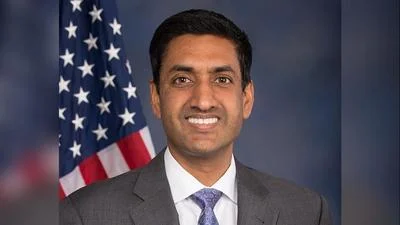John Taylor, Professor of Economics at Stanford University and developer of the "Taylor Rule" for setting interest rates | Stanford University
John Taylor, Professor of Economics at Stanford University and developer of the "Taylor Rule" for setting interest rates | Stanford University
The Biden administration's plan to replace all lead pipes in the United States has brought attention to the ongoing threat posed by lead, a toxic metal that remains prevalent despite being largely banned. Stanford researchers Stephen Luby and Jenna Forsyth have studied the presence of lead in low-income countries and its impact on health, particularly in products like turmeric. They published findings in The Lancet Public Health and Science of the Total Environment, emphasizing the global health and economic costs of lead.
"Lead is a remarkably harmful toxin," stated Luby, highlighting the need for reducing exposure even with limited resources. He noted industries' resistance due to financial incentives as a significant hurdle in phasing out lead by 2035. Drawing parallels with chlorofluorocarbons' removal from the atmosphere, Luby suggested technological innovations could help eliminate lead economically.
Forsyth pointed out that remediation of contaminated sites is crucial since "lead does not degrade or go away on its own." Their research, initially funded by Stanford Woods Institute for the Environment and Stanford King Center on Global Development, identified lead adulteration in turmeric as a cause of elevated blood lead levels in Bangladesh. This led to stricter testing and quality control measures.
The initiative called Project Unleaded now extends to India and Pakistan, addressing pollution from the lead-acid battery industry. It aims to identify major sources of lead poisoning globally and develop interventions to eliminate them.
Forsyth proposed immediate actions against food fraud involving lead chromate in turmeric: raising awareness about toxicity, enhancing detection capacity, and enforcing food safety policies.
Regarding alternatives to lead-acid batteries, Luby recommended lithium-ion batteries as they are lighter and cost-effective over time. Forsyth added that microfinance loans might be necessary to cover higher upfront costs for these alternatives.
Luby serves as director of research at Stanford Center for Innovation in Global Health and holds various affiliations within Stanford University. Forsyth is associated with several institutes focused on sustainability and development at Stanford.
Co-authors of related studies include Erica Plambeck from Stanford Graduate School of Business; Grant Miller from Freeman Spogli Institute for International Studies; Eran Bendavid from Stanford School of Medicine; among others from international institutions.
For more information or media inquiries, contact Jenna Forsyth or Stephen Luby at their respective emails provided by Stanford University.




 Alerts Sign-up
Alerts Sign-up